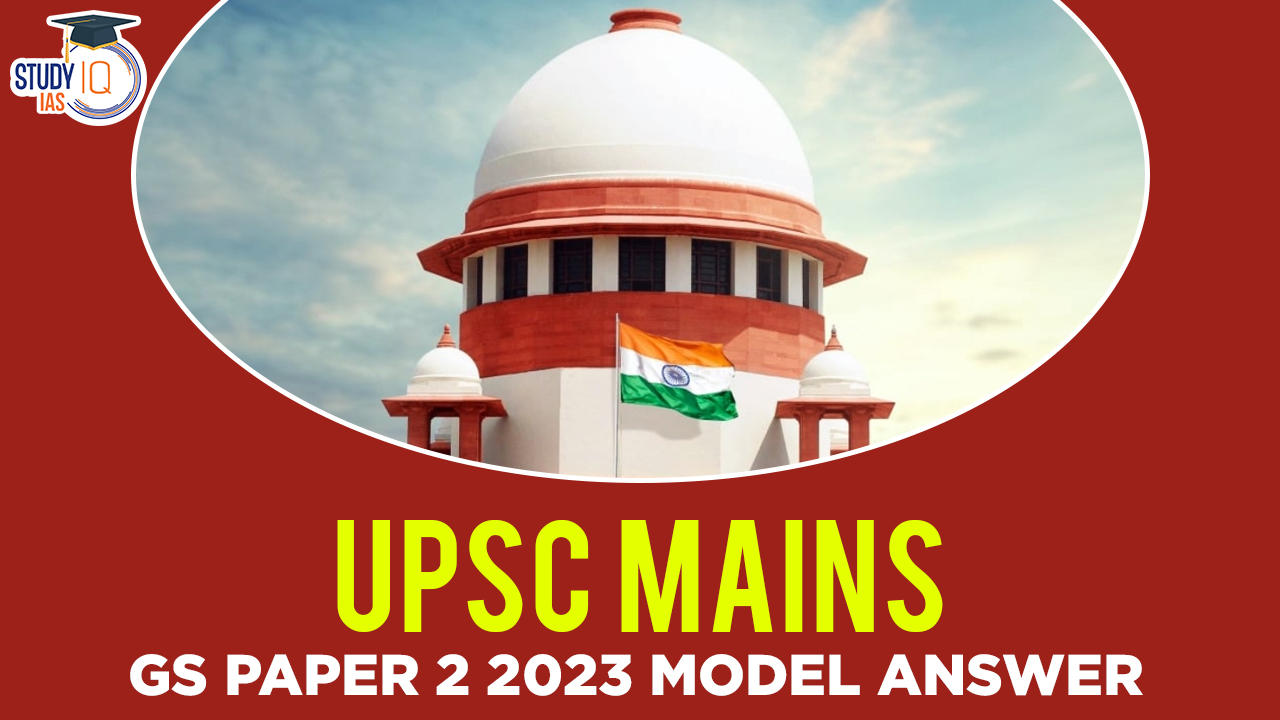Q4. Compare and contrast the British and Indian approaches to Parliamentary sovereignty. (10m)
Introduction:
Parliamentary sovereignty means an absolute and supreme authority of a country’s legislative body to make, amend, and repeal laws without any interference or constraint from other organs of the state.
| Parameters | India | Britain |
| Supremacy of Parliament | In India there is a blend of Judicial Supremacy and Parliamentary Sovereignty. The powers of Parliament are limited by the constitutional provisions. | In Britain, the supreme law making authority lies with the Parliament. The laws enacted by Parliament can not be questioned. |
| Nature of Constitution | Written Constitution limits the authority of the Indian Parliament.
E.g. A.13, Fundamental rights limits the authority of parliament |
Unwritten constitution in Britain and parliamentary functioning based on conventions and precedents allows larger discretion to the British Parliament. |
| Nature of polity | Federal nature of polity in India demands sharing of power between Union and State governments. Indian Parliament cannot legislate on state list matters in normal times. | Unitary nature of polity in Britain favours the principle of sovereignty of the British Parliament in making laws for the country. |
| Limited Amending Powers | The amending powers of Indian Parliament are restricted by judicial review. The Judiciary can declare any legislation unconstitutional if it goes against the basic features of the Constitution.
E.g. NJAC. |
The power of the British Parliament is not only legally unrestricted but it can even change the well established Constitutional principle through legislative process. |
| Limited by Veto Power | In India, the Presidential Veto also acts as a limitation on sovereignty of Parliament.
E.g. Pocket Veto by former President Giani Zail Singh on Indian Post Office (Amendment Bill). |
Though the British Monarch is head of state, the real powers to make legislation lies with Parliament. While the monarch can refuse Royal assent it has not been witnessed since 1708. |
Conclusion
In this way, the approaches to Parliamentary Sovereignty differ in India and Britain. However, legislatures in both the countries adhere to the basic principles of rule of law,upholding fundamental rights and promoting equality and justice for all.
Check out the UPSC Mains GS Paper 2 2023 Analysis with detailed expatiation of the topics of Mains GS Paper 2 By the Study IQ Experts





















 WhatsApp
WhatsApp